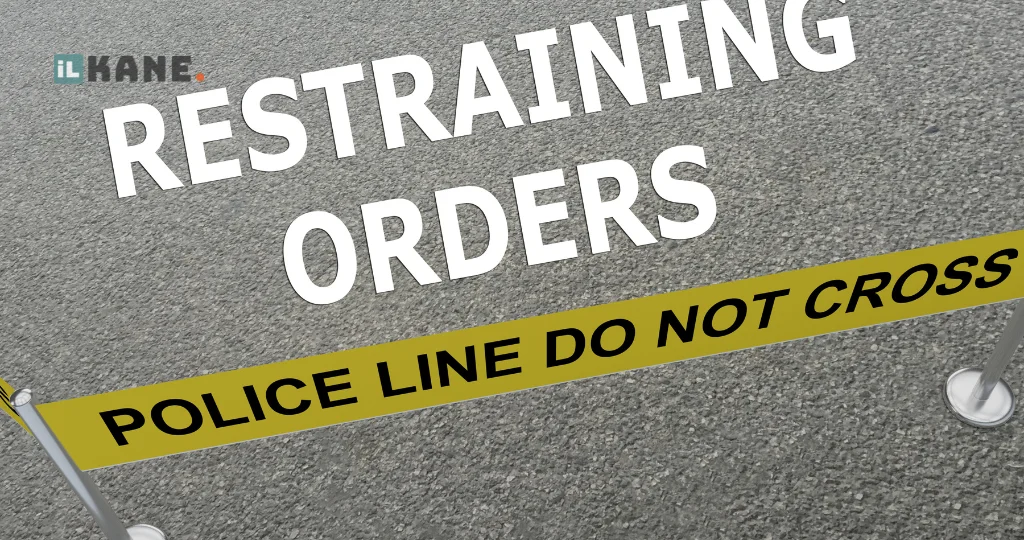Step-by-Step: A Friendly Approach to Dismissing a Restraining Order in NJ Are you in a situation where you need to dismiss a restraining order in NJ? We understand that this can be a stressful and overwhelming process. However, with the right approach and guidance, you can navigate through it smoothly. In this step-by-step guide, we will provide you with a friendly approach to help you dismiss a restraining order in NJ.
Understand the Process:
To dismiss a restraining order in NJ, it’s important to familiarize yourself with the process. Take the time to research and understand the laws and regulations surrounding restraining orders in the state. This will give you a solid foundation and help you navigate through the steps ahead.
Seek Legal Advice:
While you can pursue the dismissal of a restraining order on your own, seeking legal advice is highly recommended. A knowledgeable attorney can guide you through the process, ensuring that you have all the necessary documentation and evidence to build a strong case for dismissal.
Gather Evidence:
To successfully dismiss a restraining order, you need to gather evidence that supports your case. Keep in mind that the burden of proof lies on you, so it’s essential to have compelling evidence that demonstrates why the restraining order should be dismissed. This may include witness statements, text messages, emails, or any other relevant documentation.
Prepare Your Case:
Once you have gathered all the necessary evidence, it’s time to prepare your case. Work closely with your attorney to build a strong argument for dismissal. Present your evidence in a clear and concise manner, highlighting any inconsistencies or discrepancies that may weaken the plaintiff’s case.
Attend the Court Hearing:
When the court hearing date arrives, be prepared to present your case. Dress appropriately and maintain a friendly and respectful demeanor throughout the proceedings. Remember, your goal is to convince the judge that the restraining order should be dismissed based on the evidence you have presented.
Follow Court Orders:
During the court hearing, the judge may issue specific orders or conditions that you need to adhere to. It’s crucial to follow these orders to the letter. Failure to comply with the court’s instructions may harm your chances of successfully dismissing the restraining order.

Maintain a Positive Attitude:
Dealing with a restraining order can be emotionally draining, but it’s essential to maintain a positive attitude throughout the process. Surround yourself with a supportive network of friends and family who can provide encouragement and understanding during this challenging time.
Stay Informed:
Keep yourself informed about any updates or changes regarding your case. Stay in close contact with your attorney and follow their guidance. Being proactive and well-informed will help you navigate through any potential obstacles that may arise.
Embrace Self-Care:
As you work towards dismissing the restraining order, it’s crucial to prioritize self-care. Participate in activities that bring you happiness and assist in reducing stress. Take care of your physical and mental well-being, and seek professional help if needed.
Celebrate Your Success:
Once the restraining order has been successfully dismissed, take a moment to celebrate your victory. You have overcome a challenging situation, and it’s important to acknowledge your strength and resilience.
Dismissing a restraining order in NJ can be a complicated process, but with a friendly approach and the right guidance, it is achievable. Remember to seek legal advice, gather evidence, and present your case in a clear and concise manner. Stay positive, informed, and take care of yourself throughout the process. You’ve got this!
The Power of Knowledge: Steps to Dismiss a Restraining Order in NJ:
Hello there! If you or someone you know is facing the challenging situation of having a restraining order in New Jersey, you’ve come to the right place. In this blog post, we will guide you through the steps to dismiss a restraining order in NJ. By empowering yourself with knowledge, you can take the necessary actions to navigate this process successfully. So, let’s dive right in!
Understanding Restraining Orders in NJ:
Before we delve into the steps to dismiss a restraining order, let’s briefly understand what it entails. A restraining order is a legal document that protects one person from another who has been deemed a threat or has engaged in harassment, assault, or abuse. In New Jersey, these orders can impact various aspects of a person’s life, including their ability to see their children, access their home, or possess firearms.
Gather Information:
To effectively dismiss a restraining order in NJ, it’s crucial to gather all the necessary information regarding the order. Find the specific details, including the court that issued the order, the date it was issued, and the reasons behind it. Understanding these details will help you navigate the process better.
Consult with an Attorney:
While it’s possible to dismiss a restraining order without legal representation, it’s highly recommended to consult with an experienced attorney. They can provide you with valuable insights, guide you through the legal procedures, and ensure that all the necessary paperwork is filed correctly. An attorney can also help build a strong case to support your request for dismissal.
File a Motion to Dismiss:
With the assistance of your attorney, file a formal motion to dismiss the restraining order. This motion will outline the reasons why the order should be dismissed and present the evidence you have gathered. Your attorney will ensure that all the necessary paperwork is completed accurately and submitted within the required timeframe.

Attend the Hearing:
Once your motion to dismiss is filed, a hearing will be scheduled. It is crucial that you attend this hearing, accompanied by your attorney. During the hearing, you will have the opportunity to present your case and respond to any questions or challenges. Your attorney will advocate on your behalf, presenting the evidence and arguments to support the dismissal of the restraining order.
Follow the Court’s Decision:
After the hearing, the court will make a decision regarding the dismissal of the restraining order. If the order is dismissed, it will no longer be in effect, and you can resume your normal activities. However, it’s important to follow any additional instructions or guidelines provided by the court.
Facing a restraining order can be a daunting experience, but by arming yourself with knowledge and following the proper steps, you can work towards having it dismissed. Remember, seeking the guidance of an experienced attorney is crucial to navigate the legal process successfully. Stay positive, be prepared, and trust in the power of knowledge to help you overcome this challenging situation.
Protecting Your Future:
How to Dismiss a Restraining Order in NJ with Ease. Welcome to our blog post on how to dismiss a restraining order in NJ. If you or someone you know is facing a restraining order, it’s important to understand the steps involved in the process of dismissal. With the right knowledge and guidance, you can protect your future and navigate through this challenging situation with ease.
Before we dive into the details, let’s first understand what a restraining order is and why it may be necessary to have it dismissed. A restraining order is a legal order issued by the court, which restricts an individual from contacting or being in close proximity to another person. While restraining orders are put in place to protect someone from harm, there are instances where they may be wrongfully obtained or misused.
Now, let’s explore the steps you can take to dismiss a restraining order in NJ:
XGather evidence:
To successfully dismiss a restraining order, it’s crucial to gather evidence that supports your case. This may include text messages, emails, or any other form of communication that proves your innocence or contradicts the claims made against you.
Consult with an attorney:
Seeking legal advice is highly recommended when dealing with a restraining order. An experienced attorney can guide you through the process, help you understand your rights, and build a strong defense strategy.
File a motion to dismiss:
Your attorney will help you file a motion to dismiss the restraining order with the court. This motion outlines the reasons why the order should be dismissed and presents the evidence you have gathered to support your case.
Attend the hearing:
Once the motion is filed, a hearing will be scheduled. It’s crucial to attend the hearing and present your case in a clear and concise manner.
Your lawyer will act as your representative and present the evidence in your favor.
Provide witnesses:
If you have witnesses who can testify in your favor, it’s important to bring them to the hearing. Their testimonies can significantly strengthen your case and increase your chances of having the restraining order dismissed.
Follow court procedures:
Throughout the process, it’s important to follow all court procedures and deadlines. This includes submitting any required documents or forms promptly and attending all scheduled court appearances.
By following these steps and seeking professional legal advice, you can improve your chances of successfully dismissing a restraining order in NJ. Remember, it’s crucial to act promptly and diligently, as the process can be time-sensitive.
Conclusion
In conclusion, dealing with a restraining order can be a daunting experience, but with the right approach and guidance, you can protect your future. If you or someone you know is facing a restraining order in NJ, follow the steps outlined in this blog post and consult with an experienced attorney to ensure the best possible outcome.
Disclaimer: The content presented in this blog post is intended solely for educational purposes and should not be regarded as legal counsel. To obtain professional guidance tailored to your particular circumstances, it is advisable to seek the assistance of a qualified attorney.